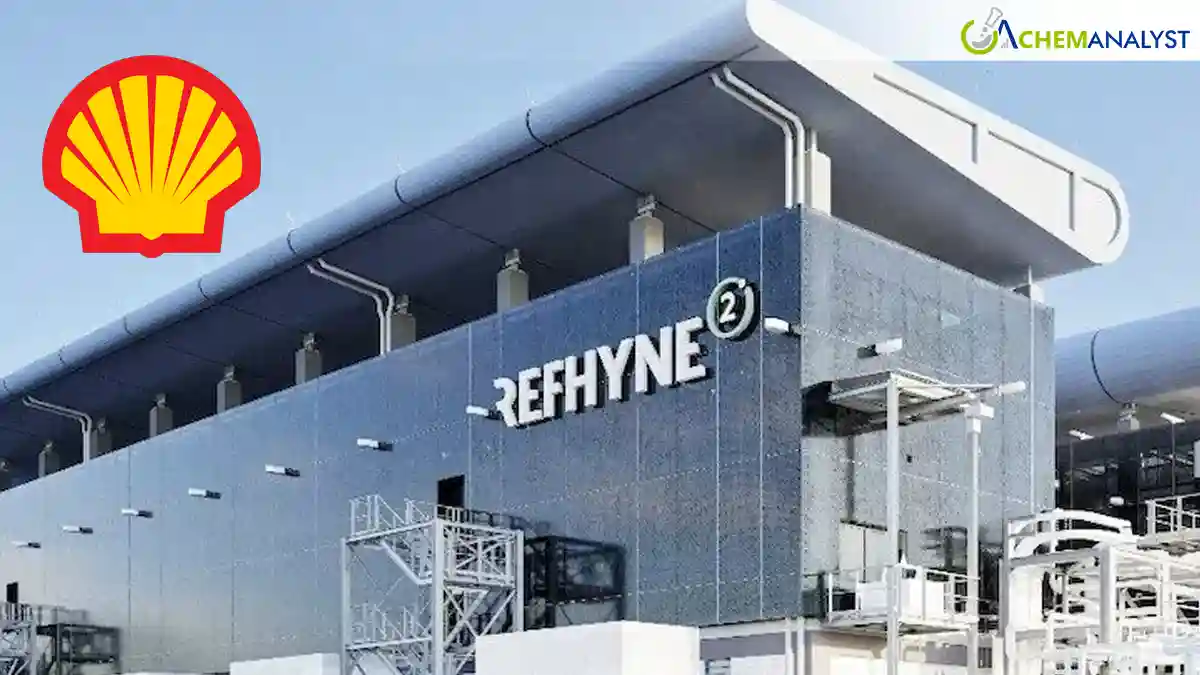Welcome To ChemAnalyst

Shell secures major wind and solar PPAs to power its 100 MW REFHYNE 2 electrolyser, advancing Germany’s renewable hydrogen and industrial decarbonisation efforts.
Shell Energy Europe Limited, a subsidiary of Shell plc, has taken a significant step toward scaling up renewable hydrogen production in Germany by finalizing two major power purchase agreements (PPAs). These agreements, signed with Nordsee One GmbH and Solarkraftwerk Halenbeck-Rohlsdorf I/II GmbH, will supply a substantial share of the renewable electricity required for the REFHYNE 2 hydrogen electrolyser, currently being developed at the Shell Energy and Chemicals Park Rheinland. Scheduled to start operations in 2027, this electrolyser is expected to play a crucial role in advancing low-carbon hydrogen production across Europe.
Under the newly signed five-year PPA with Nordsee One, a joint venture between Northland Power and RWE, Shell will procure approximately one-third of the electricity generated from the 332-megawatt (MW) offshore wind farm. This offtake arrangement will contribute a major portion of the green power demand for the hydrogen plant. Additionally, Shell has entered into a separate long-term, 10-year PPA with Solarkraftwerk Halenbeck-Rohlsdorf. Through this agreement, Shell will acquire around 75% of the output from a 230 MW solar facility currently under development. Combined, these renewable energy sources will provide vital electrical supply for the REFHYNE 2 electrolyser once it becomes operational.
The REFHYNE 2 electrolyser will have a capacity of 100 MW and is designed to generate renewable hydrogen that will support the decarbonisation of multiple product streams, including transportation fuels and chemical products manufactured at the Rheinland energy and chemicals park. By relying on renewable electricity for hydrogen production, Shell aims to significantly lower its Scope 1 and 2 emissions at the facility, reinforcing the company’s broader commitment to accelerating the energy transition and providing cleaner alternatives to its customers.
Andy Beard, Shell’s President of Hydrogen, emphasized the strategic importance of the agreements, noting that they reflect Shell’s ability to combine its trading expertise with its expanding Low Carbon Solutions business. He described the deals as a major milestone for advancing the REFHYNE 2 development and highlighted Shell’s continued focus on reducing emissions while delivering value to customers through innovative hydrogen technologies.
Leaders from both partner companies also underscored the broader significance of the agreements. Till Frohloff, Managing Director of Nordsee One, stated that the PPA demonstrates the potential of offshore wind to support Germany’s industrial decarbonisation, while providing stable environmental and financial returns. Karl-Heinz Remmers, co-CEO of Solarkraftwerk Halenbeck, added that the project illustrates how subsidy-free solar power can successfully supply large-scale industrial operations. He noted that using solar electricity to produce renewable hydrogen represents an important advancement in Germany’s clean energy landscape, reaffirming solar power as a central pillar of the country’s energy transition.
The REFHYNE 2 initiative has benefited from strong policy support from both the European Union and the German Federal Government. Binding EU-level targets for renewable hydrogen use, along with Germany's regulatory environment, have helped create favorable conditions for this project. Furthermore, REFHYNE 2 has received financial backing through the EU’s Horizon 2020 research and innovation programme.
Shell’s Energy and Chemicals Park Rheinland remains one of the company’s most critical production hubs, supplying essential components for fuels, lubricants—including those tailored for electric vehicles—cooling fluids, cosmetics, paints, and various electronic applications. The incorporation of renewable hydrogen into its operations will strengthen its position as a key supplier of low-carbon industrial materials across Europe.
We use cookies to deliver the best possible experience on our website. To learn more, visit our Privacy Policy. By continuing to use this site or by closing this box, you consent to our use of cookies. More info.
